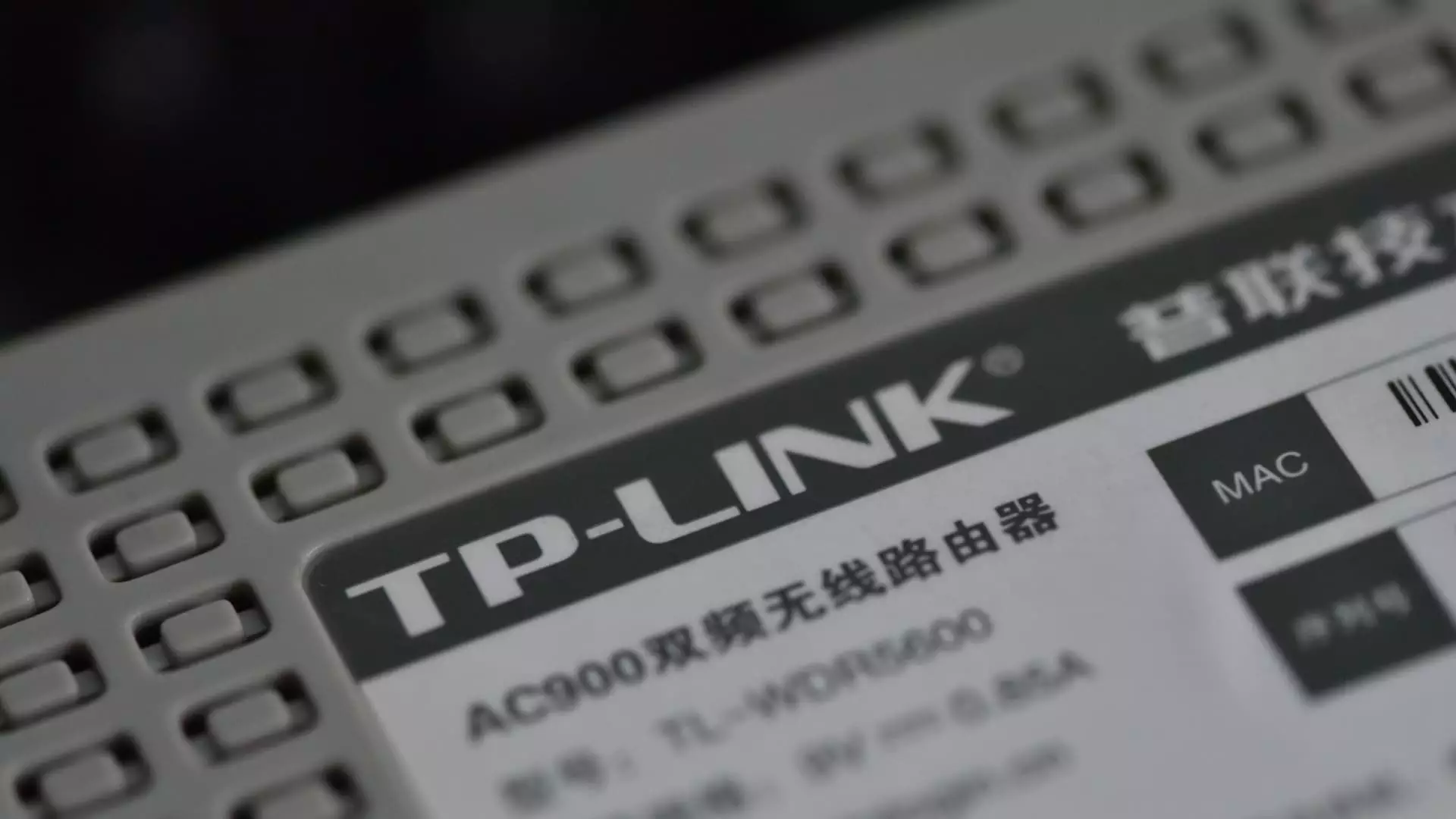The digital age has ushered in unprecedented connectivity, but it has also exposed vulnerabilities that can be exploited by various actors—including nation-states. While the media’s focus is often on high-profile applications like TikTok, subtler threats are also looming over American infrastructure. Among these is the scrutiny surrounding TP-Link routers, which account for a significant share of the U.S. market. This article delves into the implications of using TP-Link products in the context of national security.
Growing Concerns Surrounding Router Vulnerabilities
Recent investigations have spotlighted TP-Link routers as posing a potential risk to national security. Lawmakers, such as Rep. Raja Krishnamoorthi (D-IL) and Rep. John Moolenaar (R-MI), have highlighted “unusual vulnerabilities” in these devices, raising alarm about compliance with Chinese laws that could lead to unauthorized data collection. The link between TP-Link routers and past cyberattacks, especially against U.S. entities by foreign hackers, has only exacerbated concerns. The situation hints at a broader issue of supply chain dependency, particularly with technology originating from nations perceived as adversaries.
Lawmakers highlighted specific instances in which such routers were exploited to launch cyberattacks, which led to heightened scrutiny. Given that TP-Link commands a hefty 65% share of the U.S. router market, the implications of a security breach become even more pronounced. The scenario is particularly alarming when considering that these devices are also used in small offices, homes, and state utilities. The potential for unauthorized access to personal and sensitive data raises critical questions that demand immediate attention.
The Legislative Response and Prospective Actions
Despite the alarming evidence, concrete action against TP-Link routers remains limited. Krishnamoorthi’s assertion that “I am not aware of any plans to get them out” underscores a concerning inertia within government circles. Although parallels can be drawn with the “rip and replace” mandate aimed at Huawei products, the current response to TP-Link issues seems fragmented and lacks urgency.
The call for an outright ban, particularly filtered through national security agencies, hinges on a complicated web of legislation and economic implications. It is not just about protecting sensitive governmental and military data; consumer-level risks also factor into the equation. Unraveling the existing networks of TP-Link routers could involve significant logistical challenges, especially considering their ubiquity. Yet, continued warning signs suggest that action might be prompted by escalation in cybersecurity threats.
Experts are vocal about the substantial espionage threat posed by routers produced in China. The consensus is that the PRC has the intent and capacity to exploit TP-Link technology for state-sponsored data gathering. As articulated by cybersecurity professionals, the consequences extend far beyond macro-infrastructural risks to individual users. Sensitive data—including browsing histories, family information, and employer details—could potentially be collected unnoticed by everyday consumers who use these routers.
In response to growing scrutiny, TP-Link Technologies has categorically denied allegations of cybersecurity weaknesses, asserting that they do not sell their products in the U.S. However, their operations and production lines, largely based in Vietnam, do not completely sever the concern over the company’s compliance with Chinese laws. The dilemma highlights the complexities inherent in global technology supply chains and raises questions about whether American consumer data sits in safe hands.
As governmental bodies deliberate over potential bans and regulations, consumers must also remain vigilant. Technology experts advocate for enhanced public understanding regarding the implications of unencrypted communications commonly found in TP-Link and similar router brands. The risks tied to unprotected data transmissions often remain hidden from the average consumer, leaving vast amounts of personal information vulnerable.
Concerning the long-term repercussions, cybersecurity experts are calling on manufacturers to increase transparency about privacy risks associated with their products. Initiatives to educate consumers on the differences between encrypted and unencrypted data transfers are essential. In a world where hackers exploit even the most mundane vulnerabilities, awareness can serve as a first line of defense.
The dual challenges of protecting national security while ensuring consumer rights necessitate proactive strategies from both lawmakers and the public. Policymakers must move beyond discussions and assertively confront vulnerabilities posed by foreign-assisted technologies, particularly those linked to China’s state influence. On the other hand, consumers cannot afford complacency; understanding the implications of technology use has never been more crucial.
Navigating these complexities requires collaboration and shared responsibility. As the debate around TP-Link takes shape, it holds substantial implications for the future of cybersecurity, both on individual and national scales. The stakes have never been higher, and immediate action is vital to safeguard both public and national interests.

